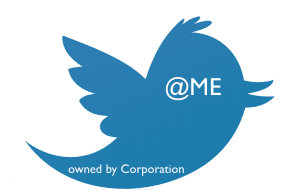Whose tweet is it, anyway?
In December 2011, I wrote up the saga about Noah Kravitz (see the original post “Social Media Ownership” here) and the issue of who owns your social media profile while you are working for and/or representing a company or brand. It is a tricky question. In this case, Noah had built up a solid Twitter following while working at his company, SnoopDog; but, after he left, the company tried to reclaim his followers. There are a lot of particulars that make this case “unique;” but, it had the merit of bringing to the forefront this issue of social media ownership. In this instance, the update (via The Next Web) is that the courts have upheld the case and accepted SnoopDog’s claims. However, the case goes on. In the meantime, Noah gets to keep his 24K+ followers.
Building up your social media credits
There are a myriad number of elements that go into the building of a following. For example, the fan base may be a function of different ingredients, such as:
- the title and/or bio of the person
- the “karma” of the person and rapid-fire sense of humor
- the editorial line
- the notoriety of the brand for whom he/she works
- the media budget that allowed helped spur the awareness of the brand and/or account
- the offline network
- the role attributed to the person
For some brands, they have clearly paved the way forward with specific handles (@usernameBRAND), such as with ComcastCares. Others have a brand name account (@Brand) that is managed by individuals who tag their tweets with their initials or other identifying marker (e.g. “^md”). But, for the vast majority of companies, there is a lot of predictable heartache about to happen regarding @ME accounts.
Related to nominative accounts
On a brand’s official Facebook page, the issue is not relevant. However, for other social networks where the profiles are those of an individual, including the LinkedIn or Viadeo professional profile, Google+, Pinterest, or an individual’s Facebook fan page (not the individual ‘personal’ profile), they could come under the same remit. It should be noted that the challenges are substantially different whether we are talking about the official handle for an SMB versus one of 100,000 employees in a large MNC. In either case, all the same, the issue needs to be addressed.
My position on the matter is that, the very act of wanting to gain control of an individual employee’s social media profile is anti-philosophy. For an individual’s account, it is likely that the more liberty a person is given, the more potential for that person to gain a flourishing following, but also to make bigger mistakes. Good practice, in my opinion, would include a mix of the following:
- above all, circulating pre-established social media guidelines / rules that directly relate to this matter
- a brand charter that establishes who and how individuals will animate an official Twitter stream (logo/no logo as a profile picture, how the company is cited in the bio…)
- offering {voluntary} training for the staff
- accepting that errors will be made.
It is a still untapped question. I would be most interested to have your opinions!











Trackbacks/Pingbacks